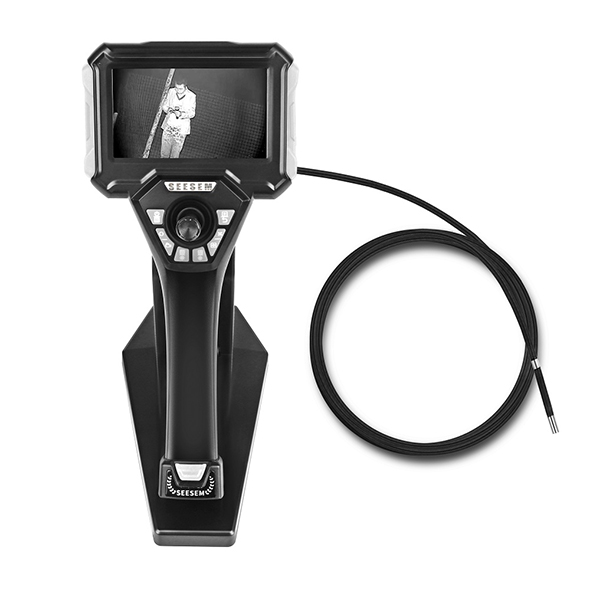Hier zijn enkele veelgestelde vragen (Veelgestelde vragen) about video borescopeS:
Q: What is a video borescope?
A: A video borescope is a flexible optical device equipped with a camera and a lighting system. It is used to inspect and visualize hard-to-reach areas that are inaccessible to the naked eye. The camera captures real-time video or images, allowing users to remotely view and analyze the internal condition of objects or equipment.
Q: How does a video borescope work?
A: A video borescope consists of a flexible insertion tube, an illumination source, and a camera at the tip. The insertion tube is maneuvered into the target area, and the camera captures the images or videos. These visuals are then displayed on a built-in screen or transmitted to an external device for real-time viewing and analysis.
Q: What are the advantages of using a video borescope?
A: Video borescopes offer several advantages over traditional inspection methods. They provide remote visual access to confined spaces, reducing the need for disassembly or destructive testing. They also allow for documentation of inspections through images or video recordings. Video borescopes are portable, versatile, and can be used in various industries, zoals automobiel, aviation, productie, and maintenance.
Q: What are the different types of video borescopes?
A: There are different types of video borescopes available, including rigid borescopes and flexible borescopes. Rigid borescopes have a straight and rigid insertion tube, while flexible borescopes have a flexible insertion tube that can bend and navigate through curved or complex paths. Each type has its own advantages and is suitable for specific applications.
Q: What are the key features to consider when choosing a video borescope?
A: When selecting a video borescope, important features to consider include the length and flexibility of the insertion tube, the resolution and image quality of the camera, the illumination options, the screen size and clarity, the battery life, and the durability of the device. The choice of features depends on the specific application requirements and the environment in which the borescope will be used.
Q: What are the limitations of video borescopes?
A: While video borescopes offer significant advantages, there are limitations to consider. The image quality may be affected by factors such as lighting conditions, the size of the inspection area, and the presence of debris or obstructions. The flexibility of the insertion tube may also have limitations in accessing extremely narrow or tightly packed spaces. It is important to choose a video borescope that is appropriate for the specific inspection needs.
Q: How do I maintain and care for a video borescope?
A: Proper maintenance and care are essential for the longevity and optimal performance of a video borescope. It is recommended to follow the manufacturer’s guidelines for cleaning, storage, and usage. Regular inspection and cleaning of the insertion tube, camera lens, and lighting system are necessary to ensure clear imaging and prevent damage. It is also important to handle the device with care and avoid subjecting it to excessive moisture, heat, or physical impact.
Q: Can a video borescope be used for underwater inspections?
A: Yes, there are video borescopes specifically designed for underwater inspections. These models are waterproof and can withstand submersion in water to a certain depth. They are commonly used for inspections in marine environments, water systems, and underwater structures.
Q: Can a video borescope capture images or videos for documentation purposes?
A: Yes, video borescopes are equipped with cameras that can capture images and videos. They often have built-in memory or support external storage devices for recording and documenting inspections.


